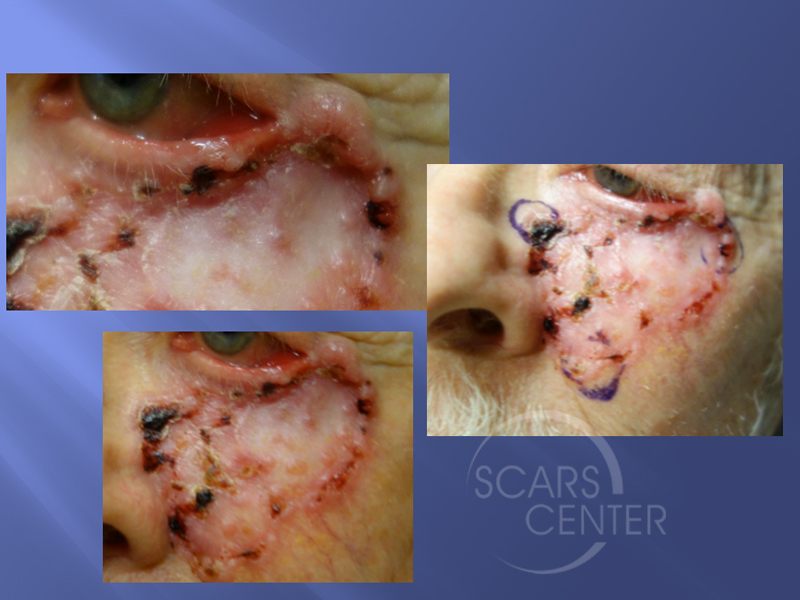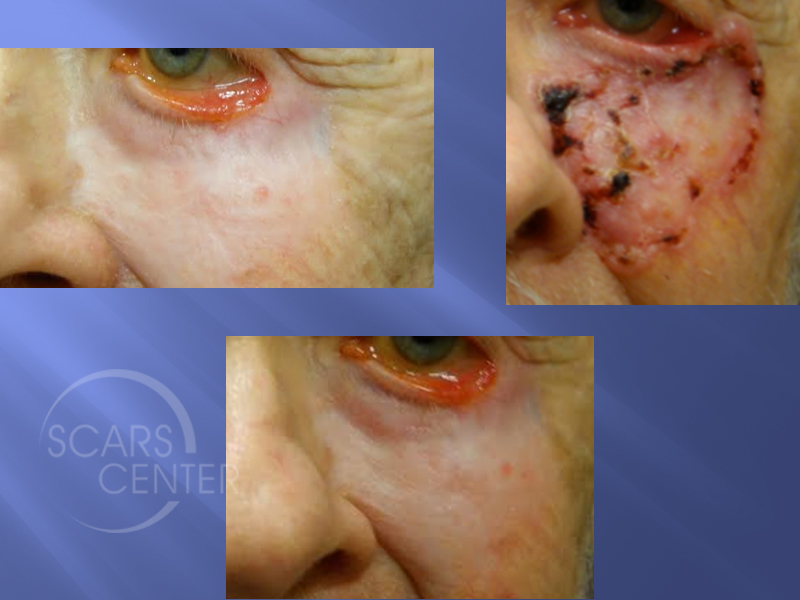LOWER LID CARCINOMA


HISTORY
This 84 year old man was initially seen with a large left facial lesion. Biopsy diagnosed basal cell carcinoma in 3 locations of biopsy. The patient was reluctant to undergo a surgical excision and reconstruction. Vismodegib (Erivedge) was used as primary treatment. Patient completed a 4 month course of 150mg daily vismodegib dose. He experienced loss of taste, hair loss, and nausea. One of the lessons of the case was that the initial histologic interpretation of the biopsy found squamous cell carcinoma. A second opinion reclassified this lesion as basal cell carcinoma paving the way for treatment with vismodegib.
DISCUSSION
This 84-year-old man presented with progressively growing left lower eyelid and cheek plaque. It clearly has the clinical appearance of a basal cell carcinoma. Surprisingly, the initial biopsy thought this to be squamous cell carcinoma. A repeat biopsy and subsequent re-evaluation by dermatopathologist confirm this as a basal cell carcinoma. Due to patient’s reluctance to undergo surgery, he was placed on vismodegib (Erivedge). The patient completed the four-month course of Erivedge with complete response of the tumor. Surprisingly, he experienced only mild symptoms with minimal loss of taste, nausea, and mild hair loss. This case represents classic complete response to Erivedge with mild experience side effects by the patients. We will follow this patient to see if the tumor recurs. Certainly, consideration for subsequent pulse therapy with vismodegib would be made, if needed. Another significant point about this case study is the need for an experienced dermatopathologist to interpret the biopsy. Small biopsy slides can be deceptive. However; an experienced dermatopathologist can more easily differentiate squamous cell carcinoma from basal cell carcinoma. Misdiagnosis in this case as a squamous cell carcinoma would have prevented the patient from getting this miraculous response to Erivedge. Vismodegib (Erivedge) is a hedgehog inhibitor specifically suited for treatment of basal cell carcinoma.
